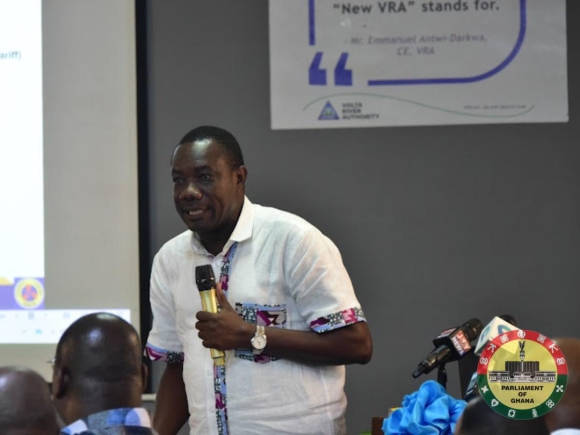ECG terminates contracts for underperformance
ECG terminates 202 contracts for underperformance

The Electricity Company of Ghana (ECG) has terminated the contracts of 202 companies that provide services to it, but whose activities were adversely affecting its operations.
The companies were part of 347 others whose contracts were audited and identified to be underperforming and creating inefficiencies.
The termination of the contracts has, thus, released the ECG from potential liabilities exceeding $227 million.
In addition, the ECG has also renegotiated its contract with Hubtel, with a contracted scope of work and a downward revision of its commission from three per cent to 1.65 per cent.
Hubtel provides some services to the ECG, including the use of the power app, and serves as a bill processing interface for the power distribution company.
The amendments were, thus, made to the initial contract.
The General Manager for External Communications at ECG, Dr Charles Nii Ayiku Ayiku, disclosed this to the Daily Graphic last Friday to throw light on what the ECG Managing Director, Julius Kpekpena, had told the Energy Committee of Parliament on the same day.
Highest profit, weak enforcement
The General Manager for External Communications said ECG also recorded its highest-ever monthly revenue in July 2025, collecting GH¢1.74 billion for that month, setting a new financial record for the power distribution company.
Dr Ayiku said following the audit, management realised that there were some weak enforcements in the company’s procurement processes.
Again, he said, management noticed that there were underperforming contracts creating inefficiencies in the system and adverse financial exposure of the company.
“So, the solution was to introduce new reforms, employ and tighten the company’s procurement processes through contract rationalisation,” he said.
The measures to prevent inefficiencies from recurring, among others, included Enterprise Resource Planning (ERP), driven budget controls and competitive tendering.
Those, Dr Ayiku said, aligned supplies with the operational needs of the company to control unplanned spending.
The controls and competitive tendering, he added, aligned supplies with operational needs and “so if we don’t need it, we would not procure it”.
He said if there was the need to undertake procurement, the company would carry out competitive tendering processes, adding that “with our tightened procurement processes we would be able to manage these kinds of supplies”.
The move, Dr Ayiku said, would curb wasteful spending by the company.
Asked if the company was making some savings with the abrogation of the contract, he said, obviously, that was exceeding $200 million.
Other steps taken, Dr Ayiku said, were to ensure that ECG complied with the cash waterfall mechanism even though allocations to ECG were not enough to meet the cost of its operations, but “we would continue to comply”.
Containers
The General Manager, External Communications said the company had been able to trace its containers after investigations were carried out by ECG and the sector ministry.
After the investigation, “we established that the containers were at the port but at different terminals.
There are so many terminals, so it was difficult to identify them, but with the support of the port authorities, we did that,” Dr Ayiku explained.
He said in the report of the port authorities, out of 2,500 containers, 33 were not immediately identified on the ground, and the partners were currently tracing the remaining 33.
ECG was also moving the traced containers to its warehouses, with 1,000 so far moved.
“When we conclude this exercise, we will definitely inform Ghanaians about the status of the containers,” Dr Ayiku added.
The company, he said, was poised to provide stable and reliable power to the country.



